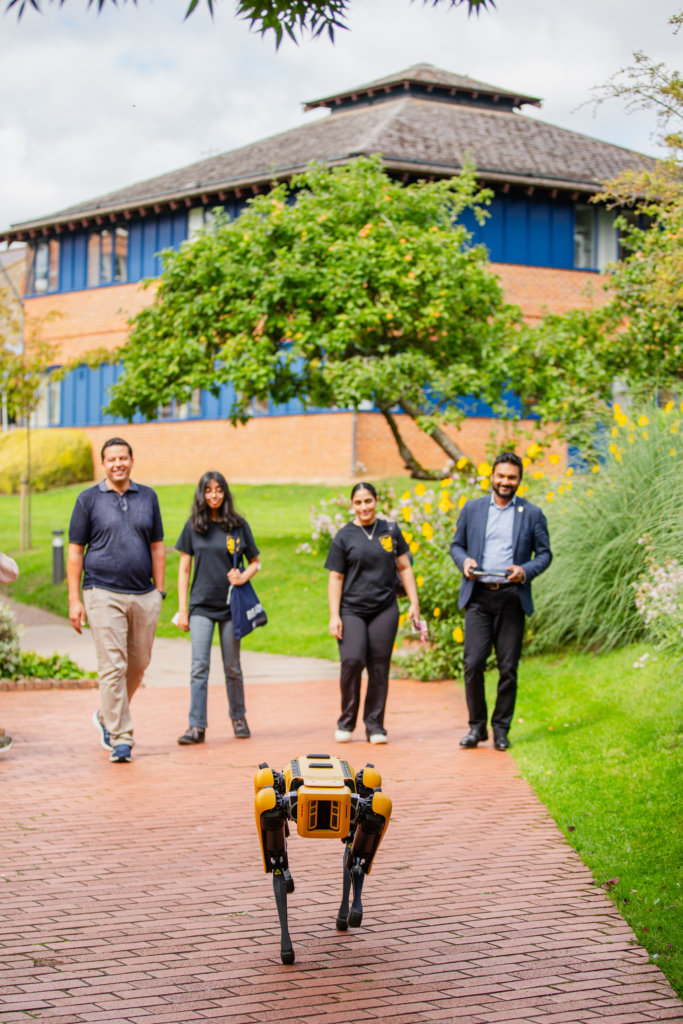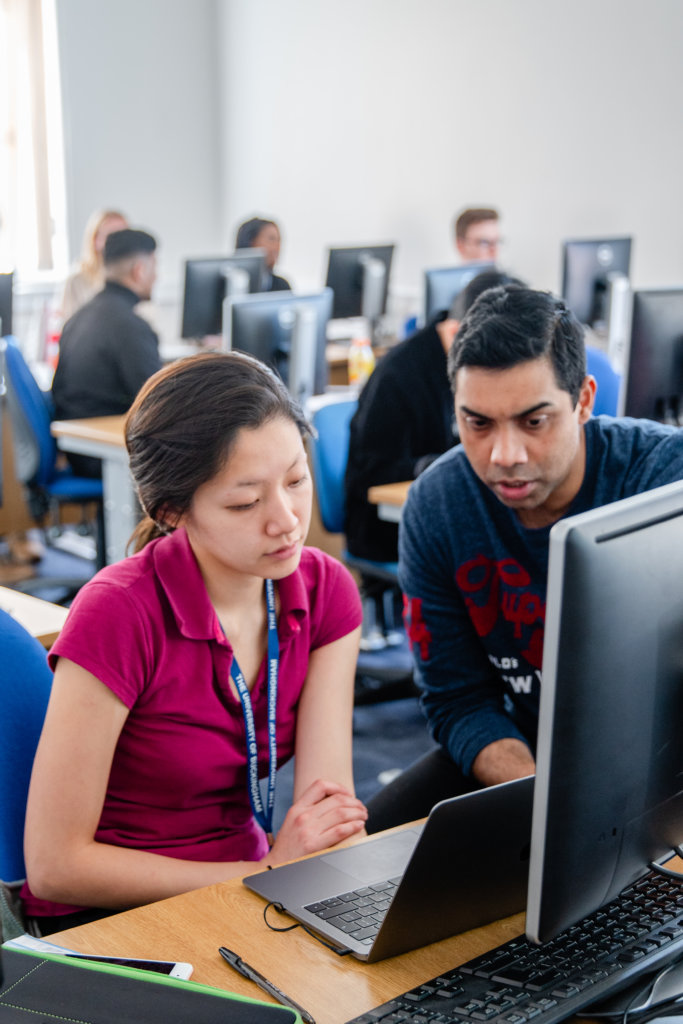A changing world needs more curious minds and tech-savvy innovators. They are the architects of solutions to complex global challenges and technological advancements that shape our future. One such visionary figure is Charunika Rathnayake from Sri Lanka, who chose to pursue an MSc Applied Computing at The University of Buckingham.
“I chose this university for its small student population, which makes it easier to connect with people. Plus, I liked the idea of small classroom teaching as I am a shy person [who would hesitate] to raise questions in a large classroom,” she says.
The University of Buckingham’s School of Computing is well-known for its satisfied and career-ready graduates. Here, you receive full support throughout your entire academic journey. An open-door policy with academic staff ensures easy access to professors, and the small class sizes guarantee personalised attention. These are crucial factors that ensure you’re prepared for your future career.
When Charunika first joined the school, she didn’t see herself as a future PhD candidate. But nearing the end of her programme, she’s discovering more career options opening up to her. “The School of Computing helped me to build confidence while providing me with knowledge and experience,” she says. “In future, my end goal is to become a machine learning expert while being in academia, possibly a senior lecturer.”
The University of Buckingham offers transformative programmes across three stages. You can start with Access to Computing at the foundation level before progressing to an accelerated two-year degree in , Artificial Intelligence and Robotics, or Cyber Security. For postgraduates looking to upskill, the school offers MSc Applied Computing, MSc Applied Data Science, and MSc Innovative Computing programmes to develop advanced knowledge and skills for future industries. The Graduate Diploma in Computing provides a route to a career in IT for those with a first degree in a non-computing background. Research programmes leading to MSc and PhD in Computing or Mathematics are also available at Buckingham.

Source: The University of Buckingham
BSc Computing students can specialise in their second year with options like Artificial Intelligence and Robotics, Computer Games and Immersive Applications Development, Cyber Security, and Software Development. Whichever route you choose, you’ll be part of a programme that blends theory with lots of hands-on practice. This approach ensures students like you evolve into knowledgeable, entrepreneurial, and digitally skilled graduates equipped to meet the demands of the future.
“The Individual Project in Computing demonstrates how theoretical concepts are applied in practical scenarios,” says Dr Maysson Ibrahim, Senior Lecturer in Computing. “For example, MSc Applied Data Science students work on projects with real-world scenarios and business problems. The data used in many projects is typically real-life data provided by employers. For other programmes, we create opportunities for students to work on projects for local businesses or non-profit organisations.”
Thanks to her programme, Charunika now has a deeper understanding of various technologies, work experience, and the ability to face job interviews with confidence. “Coursework and presentations have honed my report-writing and presentation skills,” she says. “Mini practical projects in modules like data mining and web technologies and work placement modules have helped me to prepare myself for the industry.”

The University of Buckingham is home to cutting-edge computing suites with advanced technologies, including Spot by Boston Dynamics and Birdly by Somniacs. Source: The University of Buckingham
Maryam Ghadarah believes her BSc Computing (Cybersecurity) has laid the groundwork for her future career. “My studies have equipped me with a strong understanding of computer science,” she says. “The University’s curriculum covers a range of cybersecurity modules, including cryptography, ethical hacking, and digital forensics. I now have an in-depth knowledge of multiple programming languages.”
The job market for computer science graduates is competitive. Hence, to ensure students are successful, the School of Computing continuously revises and updates the programme and module learning outcomes based on feedback obtained from various sources such as their industrial partners, subject benchmark statements and Professional, Statutory and Regulatory Bodies.
“The School supports students to get professional qualifications from reputed IT organisations such as Cisco, Microsoft, etc.,” says Dr Athar Ali, Senior Lecturer in Computing. “The students are also informed about obtaining qualifications such as the Chartered IT Professional (CITP) from accrediting organisations such as the BCS (British Computing Society).”

Source: The University of Buckingham
There are few better places to earn these qualifications than within the University’s state-of-the-art computing suites, filled with world-leading technologies. From Spot by Boston Dynamics to Birdly by Somniacs, these facilities are where you can access cutting-edge tools for your learning experience. With a significant investment of 3.2 million pounds into computing, AI, robotics, cybersecurity, and immersive technologies, the school enables you to experience, train and develop alongside the latest tech.
Little wonder then that graduates go on to work with technology giants like Amazon, BAE Systems, IBM, Microsoft, Adobe, Jaguar Land Rover and more. A dedicated Careers and Employability service further eases your transition from university to career. “During my two-year academic journey, I’ve built a professional skills portfolio and regularly attended career-oriented seminars with guest speakers from various career fields,” Maryam says. “These seminars have proven instrumental in helping me make informed decisions about my career path and gain a deeper understanding of post-degree prospects.”
Professor Harin Sellahewa, Dean of the Faculty of Computing, Law and Psychology says, “Our international and multicultural community of passionate staff are here to enable you to achieve your utmost best and your goals beyond a degree from Buckingham.”
Interested? The University of Buckingham has introduced a Sheikh / Mubarak Abdullah Al-Mubarak Al-Sabah Scholarship to enable exceptional students from Arabic countries to pursue higher education in the UK. Click here to find out more about scholarships.
To learn more about the School of Computing at The University of Buckingham, click here.
Discover more Computing success stories from The University of Buckingham.
Follow the University of Buckingham on Facebook, X, Instagram, LinkedIn and YouTube










